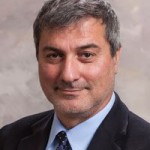After the University of Texas postponed a hearing to determine whether it should revoke a chemist’s PhD, her lawyer has filed a motion to stop the proceedings, and requested the school pay her $95,099 in lawyer fees and expenses.
This is the second time UT has threatened to revoke Suvi Orr‘s PhD, following a 2012 retraction for a paper that made up part of her dissertation, which the school alleged contained falsified data. UT revoked her degree in 2014, only to reinstate it after she sued. The school is now trying to revoke it again, but the scheduled hearing on March 4 was postponed. Last week, her lawyer filed a motion for final summary judgment requesting that UT stop the proceedings and repay $95,099 in lawyer fees and expenses. The new motion makes a few requests:









